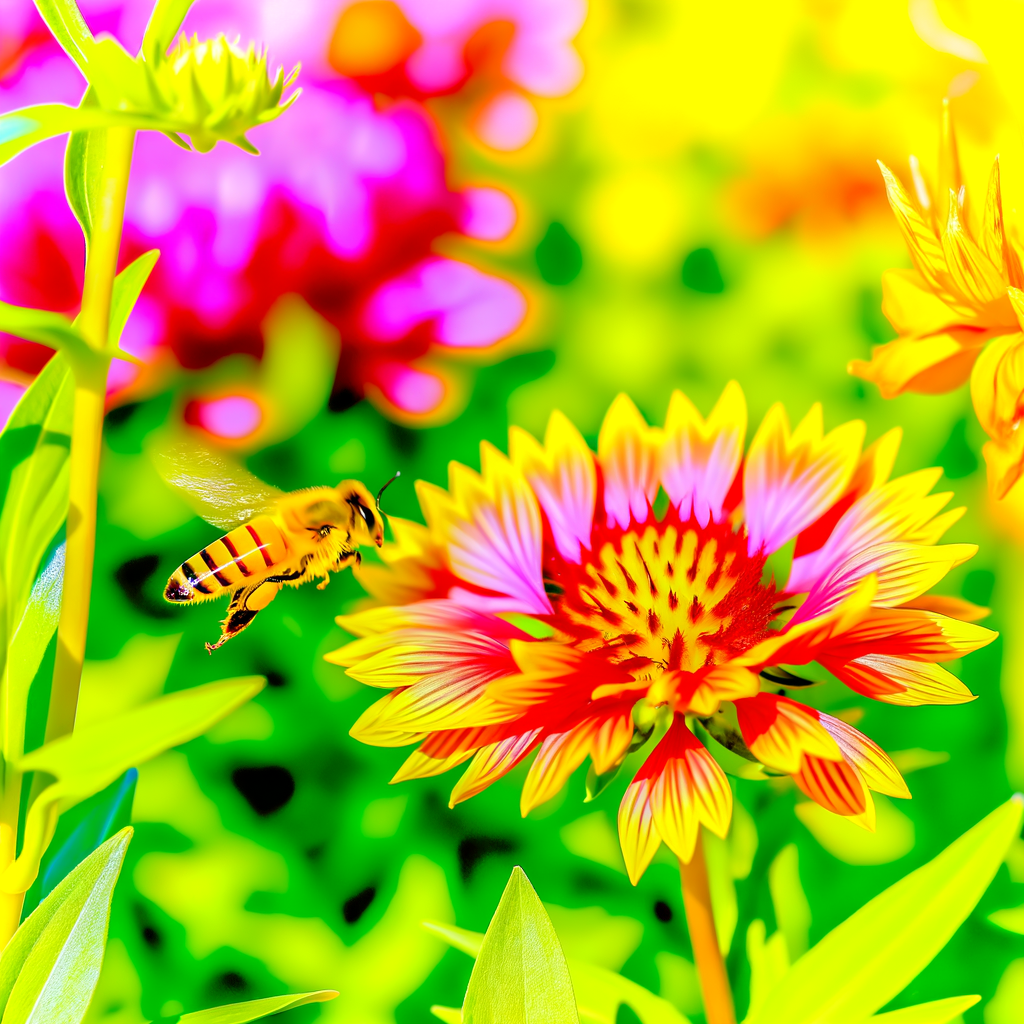How Plants Respond to Bee Buzzing by Producing More Nectar
Guest Contributor
Recent scientific research has unveiled a fascinating interaction between plants and bees that goes beyond the usual pollination process. It turns out that plants can actually detect the buzzing sounds made by bees and respond by producing more nectar. This discovery sheds new light on the complex communication between flora and their pollinators, revealing a dynamic relationship that benefits both parties.
The study highlights that when plants ‘hear’ the buzzing of nearby bees, they increase nectar secretion within minutes. This rapid response helps attract more pollinators, ensuring that plants can reproduce successfully. The phenomenon was observed in multiple plant species, suggesting that this could be a widespread natural mechanism.
Scientists conducted experiments where they played recordings of bee buzzing near flowers and noted a significant increase in nectar production compared to control groups. This implies that plants have evolved to use sound as a cue to optimize their reproductive strategy. The buzzing sound essentially signals that pollinators are nearby, prompting the plant to offer a sweeter reward.
This discovery has important implications for understanding plant-pollinator interactions, especially in the context of declining bee populations worldwide. By recognizing how plants respond to pollinator presence, conservation efforts can be better tailored to support these vital ecological relationships.
Moreover, the findings open up new avenues for agricultural innovation. Farmers might be able to harness this natural mechanism to enhance crop pollination and yield by simulating bee buzzing sounds, thus promoting nectar production and attracting more pollinators.
The research also raises intriguing questions about the sensory capabilities of plants. While plants lack ears, they appear to detect vibrations caused by bee buzzing, signaling a form of acoustic perception that challenges traditional views of plant biology.
Overall, this study enriches our understanding of how plants and animals interact in nature. It emphasizes the importance of pollinators like bees and the sophisticated ways plants have adapted to ensure their survival and reproduction.
Read more at The Guardian

